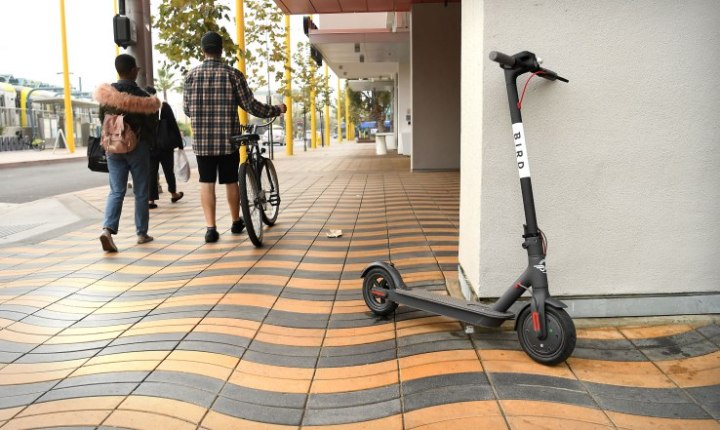
The bikes of the future are looking more and more like the bikes of your past. We’re talking, of course, about the renaissance of the scooter, which seems to have hit a new stride now that it has been electrified. Escooters seem to be popping up all over the country these days and have become so popular that a number of companies are now looking to offer escooter sharing systems.
The latest to enter the scene is Bird, a company founded by a man who knows a little something about mobility solutions. His name is Travis VanderZanden, and he was previously the vice president of growth at Uber, and before that, the chief operating officer of Lyft.
Today, he is on his own, and launching a new company that doesn’t offer car services, but rather scooter services. Bird is based in Santa Monica, California, and as of February 2018, VanderZanden had launched around 1,000 of these escooters around the city. At that point, he told TechCrunch, 50,000 people had taken around 250,000 rides.
Those numbers are likely to burgeon even further, as Bird recently raised $100 million on a $300 million valuation. As one investor noted, “It feels like investing in Uber when it first launched.” The new cash influx should help the company expand beyond its native Santa Monica, and it certainly ought to do so quickly — indeed, there are already a number of competitors who have taken note of the e-scooter sharing model, including LimeBike.
And now, in perhaps its boldest move yet, Bird says that it has signed agreements with Ninebot, the parent company of Segway, and Chinese giant Xiaomi, to have exclusive rights to their supply of ridesharing escooters in the U.S. This could be a huge blow to competitors LimeBike and Spin, as both of these competitors depend upon Ninebot and Xiaomi for their own scooters.
“That’s news to us, we have a contract with both,” an executive at a competing scooter company told TechCrunch when asked about the deal. Apparently, Bird’s deal is worth tens of millions of dollars, and an untold number of new scooters.
Even with existing competitors, Bird has captured the attention of investors. “Bird has a transformative, last-mile electric vehicle solution with a powerful community of enthusiastic riders, and it’s by far the first-mover in the field,” Antonio Gracias, Valor’s founder and a Tesla and SpaceX board member, said in a statement. “We believe Bird is writing the next chapter in transportation and is poised to become the next great company in this space.”
Getting started on Bird ought to be pretty easy. New riders need a driver’s license and a credit card number (which they enter into the Bird app). Once that is done, you are charged $1 to unlock the scooter and an additional 15 cents for each minute. You will be able to go as far as the scooter can take you and at speeds of up to 15 miles per hour. Apparently, some folks have made Birds take them all the way to Los Angeles International Airport, while others have ridden from Santa Monica into downtown L.A. (about a 15.5-mile commute).
For the time being, the dockless escooters are only available from 6 a.m. to 8 p.m. Once that timeframe is up, Bird employees collect the scooters to clear them off the streets, and then replace them in front of coffee houses and other small businesses, as requested, beginning early the next morning.
“People are taking notice of how quickly Bird is growing,” VanderZanden said, noting that a number of copycat companies have already popped up. “Preventing car ownership is the goal of all these companies. I think if all of us are successful, that’s fine.”
Updated on May 13: Bird is buying more scooters with so-called exclusive deals with Ninebot and Xiaomi.


